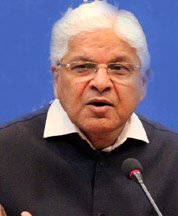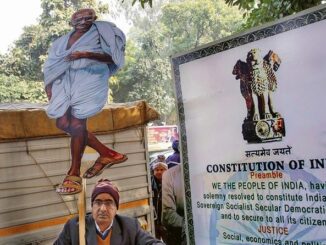
The Manish Sisodia case raises the question whether the liberty of individuals can be held hostage to the benevolence or sense of fairness of the prosecutor alone
“In eventually restoring Mr. Sisodia’s liberty, pending the final decision in his case, the apex court has redeemed itself of the charge of ambivalence in the earlier rounds despite the existence of legal and factual basis for bail. It need not now ‘trudge on the debris of conscience’. The judgment would have served its purpose if undertrials are not made to languish in custody endlessly, with their freedom, reputation, privacy and dignity irretrievably lost without apology or recompense. And, the nation must repurpose its politics away from personal animosities in an ennobling pursuit of justice and dignity for all, thereby revitalizing a democracy under stress.”

Former Delhi Deputy Chief Minister Manish Sisodia’s enlargement on bail by the Supreme Court of India, after an unconscionably long incarceration, is a welcome vindication of the apex court’s remit as custodian of individual liberties. In an eloquent exposition of its mandate, the Court reiterated that ‘a constitutional court has to lean in favor of constitutionalism and the rule of law of which liberty is an intrinsic part…’
Citing its judgment in Arnab Manoranjan Goswami vs The State of Maharashtra and Ors. (2020), it reaffirmed that ‘liberty across human eras is as tenacious as tenacious can be’. Reiterating the salutary constitutional principle expounded as early as 1977 by Justice V.R. Krishna Iyer, that bail is the rule and jail an exception, the Court reaffirmed that the right to fair and speedy trial was implicit in the right to life under Article 21. It concluded that this right was denied to Mr. Sisodia.
Earlier observations
In arriving at its conclusions, the Court relied on the observations of the Court in its first order of October 30, 2023 (Manish Sisodia vs Central Bureau of Investigation), and also the submissions advanced before it in the first round, adverting particularly to the 56,000 pages of documents and 456 witnesses (at that stage which, numbers were subsequently increased) in the two cases — and which the Court felt could delay the trial and conclusion of the case inordinately. It also referred to and relied upon several of its judgments, from Kashmira Singh (1977) till the later decisions— (in P. Chidambaram (2020) and Satender Kumar Antil (2022) — on the accused’s right to speedy trial. To these could be added the Court’s decision in Sheikh Javed Iqbal (2024).
Stating further that the constitutional mandate must prevail as the higher law, the apex court ruled, in Manish Sisodia vs Directorate of Enforcement, purposively that ‘the right to bail in cases of delay, coupled with incarceration for a long period, depending on the nature of the allegations, should be read into Section 439 Cr.PC and Section 45 of the PMLA [Prevention of Money Laundering Act]’.
In its entirety, the judgment must gladden the hearts of libertarians, considering the troubling and persistent apprehensions about the weaponizing of the stringent penal laws in the country, and concerns about the oppressive application and implementation of the PMLA. Taking cognizance of the information furnished to Parliament recently, the Court noticed that out of the over 5,000 cases brought under the PMLA in the last 10 years, only 40 cases resulted in convictions. In his statement in the Rajya Sabha, the Minister of State for Finance disclosed that ‘the ED filed 15 enforcement case information reports (ECIRs) in 2019, followed by 28 in 2020, 26 in 2021, 34 in 2022, 26 in 2023 and three in 2024 as on July 31. Only one conviction in the cases was reported to have been made in 2020.
Clearly, the processes of our criminal justice system, leading to endless delays, are oppressive, with procedure itself being the punishment. The reality of the technicalities of procedural laws defeating justice has been judicially recognized and eloquently summed up as ‘the mortality of justice at the hands of law’ — Sushil Kumar Sen (1975); Rani Kusum (2005).
A caveat
Notwithstanding its unexceptionable constitutional merit, the judgment begs a troubling question. Was it right for the Court, consistent with its other observations in the first round, to condone the custodial confinement of the accused based on the statement of the prosecution that the trial would be completed within six to eight months? Or to extend the detention of the accused on the basis of the prosecuting counsel’s statement recorded in the Court’s second order of June 4, 2024 that the complaint/charge sheet would be filed on or before July 3, 2024? In a sense, does this not make the prosecutor a judge in its own cause, contrary to the first principles of natural justice and vitiating at its core the procedural imperatives of fair trial?
The guarantee of civil liberties
In our constitutional scheme, the liberty of individuals cannot be held hostage to the benevolence or sense of fairness of the prosecutor alone. It must stand on the unbreachable foundation of justice anchored in inalienable rights ‘born in flesh, carried in our bodies from birth to death’. We know that sacrosanct rights ‘undergrid’ the law; that there is no virtue in legal processes that are unjust and laws that fail to render justice must be changed. Denial of freedom is denial of humanity itself. Therefore, its preservation against excesses of the executive is the first charge on the apex Court’s constitutional and moral authority. Although the ultimate guarantee of civil liberties lies in the faith and assertion of the people, as Justice Robert Jackson of the United States reminded us in Douglas vs City of Jeannette (1943), the courts’ auxiliary protection against encroachment of human rights is the crucial test of a vibrant democracy.
In eventually restoring Mr. Sisodia’s liberty, pending the final decision in his case, the apex court has redeemed itself of the charge of ambivalence in the earlier rounds despite the existence of legal and factual basis for bail. It need not now ‘trudge on the debris of conscience’. The judgment would have served its purpose if undertrials are not made to languish in custody endlessly, with their freedom, reputation, privacy and dignity irretrievably lost without apology or recompense. And, the nation must repurpose its politics away from personal animosities in an ennobling pursuit of justice and dignity for all, thereby revitalizing a democracy under stress.
(Ashwani Kumar is Senior Advocate, Supreme Court of India and a former Union Minister for Law and Justice.)




Be the first to comment